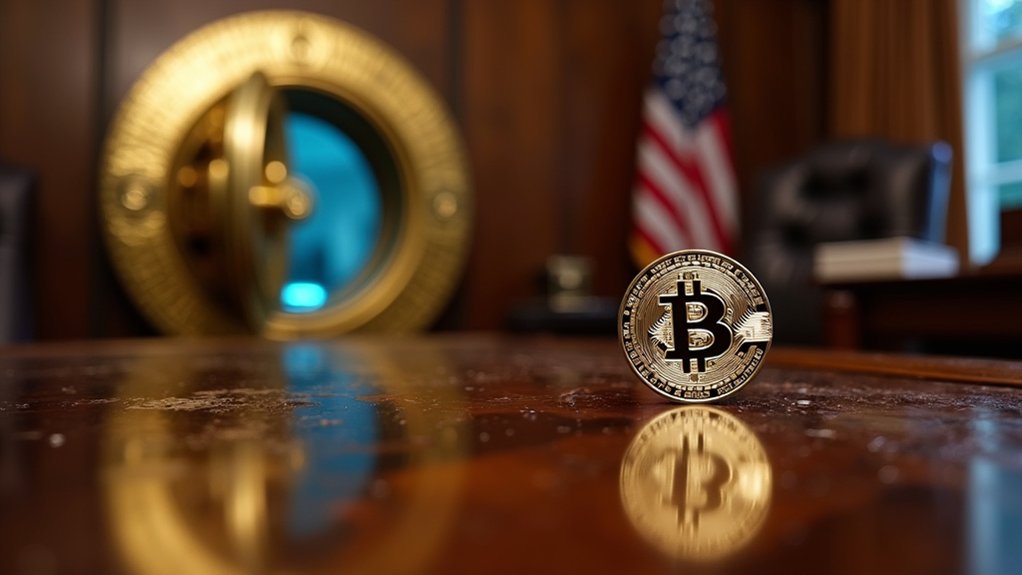Funding for the reserve would come from multiple sources, including legislative appropriations, dedicated revenue streams, and private donations. The initiative grants the Comptroller broad authority over reserve management, supported by an advisory committee comprising both government officials and cryptocurrency investment experts.
Transparency remains central to the proposal, with biennial reports to the Legislature detailing holdings, valuations, and management actions.
Transparent oversight ensures lawmakers receive comprehensive reports on cryptocurrency holdings and management decisions every two years.
The economic implications for Texas could be substantial. The state, which generates over $250 billion annually in various revenue streams, has already benefited from cryptocurrency activities. Bitcoin mining operations reportedly saved Texas approximately $18 billion while contributing to electrical grid stability during peak usage periods. The fixed supply cap of Bitcoin ensures scarcity value while state reserves continue to grow over time.
This initiative places Texas at the forefront of a growing trend, as states including Utah, Arizona, Oklahoma, and Massachusetts have introduced similar proposals. Lt. Governor Dan Patrick has made the Texas Bitcoin Reserve one of his legislative priorities for 2025.
El Salvador established a precedent internationally by adopting Bitcoin as legal tender with a national reserve in 2021. Proponents suggest the Texas Bitcoin Reserve would diversify the state's investment portfolio, provide a hedge against inflation, and improve Texas' reputation as a digital finance leader, potentially attracting additional blockchain businesses and investments to the region. Unlike SB 21, which allows for a range of cryptocurrencies, the competing House Bill 1598 focuses exclusively on Bitcoin as asset.





